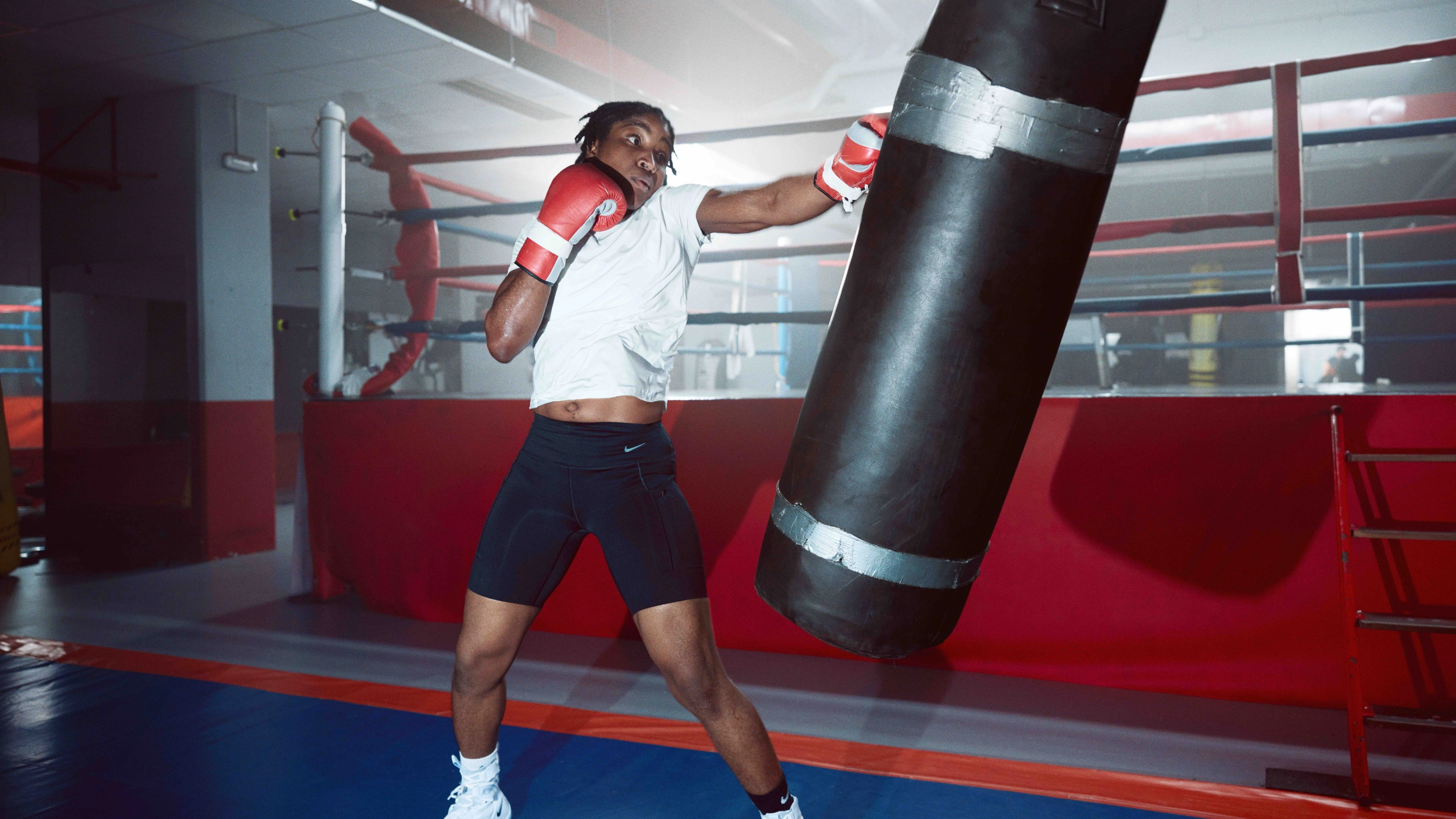Boxer Cindy Ngamba is Ready to Fight to the Finish
- May 20, 2024

Boxer Cindy Ngamba remembers the first time she sparred against a training partner at her home boxing club in the English town of Bolton. She was 18 years old. Her competitor, a towering male boxer, wound back and hit Cindy with a fierce backhand, sending her to the floor. She bounced back up and brought her fists to her face. “Good shot,” she said through her mouthguard. The gym’s coach, Dave Langone, watched from outside the ring. “This girl is crazy,” he muttered to himself.
Six years later, Cindy is already a three-time UK national champion in three different weight classes. She is also one of 36 competitors on the Olympic Refugee Team, a group of athletes from across the world who will compete in Paris without an official host country. Cindy was born in Cameroon, later moving to the UK at age 11 in search of a brighter future. No setback will deny Cindy her place in the ring — because the sport means so much more to her than championship titles. Here, Cindy speaks to her fierce determination, worldwide community and unwavering confidence as she prepares for Paris.
I’m representing the millions of refugees in the world who are one big family. My main sense of identity is found in the refugee team. The 36 of us athletes who will compete in Paris need to go in and fight for our place, just like we’ve always done.
Combat sports have very unique qualities compared to other sports. One way boxing is different is how you need to get used to moving your own body while countering the movement of the competitor in front of you. You have to get used to the momentum of your body against theirs. That’s why sparring is one of the most important training tools you can use as a boxer.
Sometimes the best coaches are the ones who can change their minds. My current coach, Dave Langone, is the same person who coached me at the beginning of my career. Originally, he didn’t believe in female boxing. Now, having watched me achieve so much success in my career, he doesn’t just believe in female boxing. He knows he’s coaching the best female in the world.
Momentary setbacks can be your advantage. Being the only female in my gym is something I’ve always been used to. When I first started boxing in Bolton, the coaches told me that all I could do was jump rope and shadow box off to the side of the ring; they didn’t think I could handle true sparring. I did that for almost three years. Once I proved myself, I was part of the community. In fact, I felt like being around men made me stronger mentally and physically.
Boxing is an individual sport, but it’s built around community. You meet new people all around the world, international competitors from different countries, and you become family. You learn about other traditions, other cultures, other languages.
"[In Paris], I’m representing the millions of refugees in the world who are one big family."
As an athlete, you need to have habits that bring you back down to reality. One of my rituals during competition is to wear two different colored socks. People have an issue with wearing odd things. I started wearing two different socks just to annoy people, to have some fun [big laugh]. But as I kept doing it, I realized I’m the type of person who likes to wear what I wear and I don’t care what other people think. Now I consider my socks my good-luck charm.
Winning is the result of making small adjustments. Last year at the European Games in Poland, I finished in second place. I was proud of how I competed, but not just because I medaled. I realized midway through one of my matches that I was overthinking my technique, I wasn’t letting my body flow or relax. Winning in that moment meant letting my body take over. I understood a small mentality adjustment I needed to make to succeed.
Victory is the prize for all of your hard work. It’s the prize after crossing many, many barriers and seeing the light at the end of the tunnel.
I want the next generation to know that listening is a big key to your success. Listen to your coaches when they say something, and don’t act like you know it all. Even the best in the world don’t know it all.